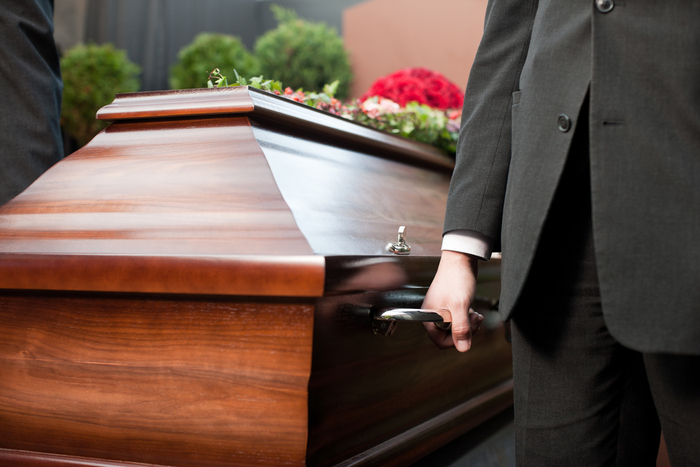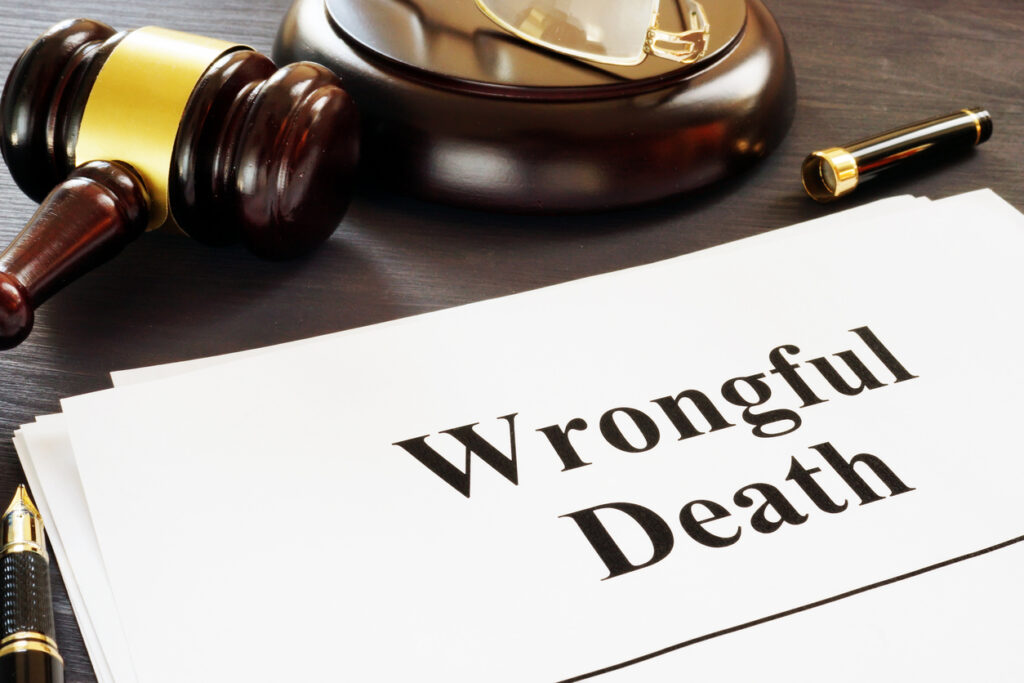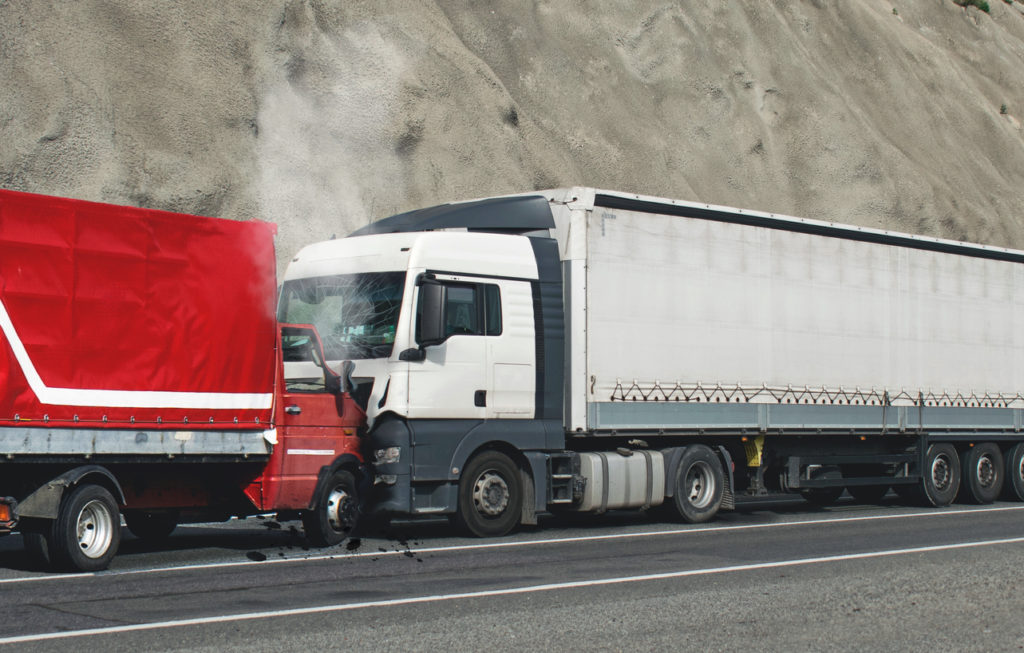reports1@rankings.io | October 9, 2025 | Uncategorized

In Texas, the right to file a wrongful death lawsuit after a fatal truck accident is granted to the surviving spouse, children, and parents of the person who died. This right is established under a specific law, the Texas Civil Practice and Remedies Code § 71.004. These family members may file the claim individually or together as a group.
If none of these immediate family members file a lawsuit within three months of the death, the personal representative of the deceased’s estate is then permitted to file the claim, unless the surviving family members specifically request that no lawsuit be filed. The process involves strict deadlines (typically two years from the date of death) and requires proving that the truck driver or their employer’s negligence caused the accident. This means gathering significant evidence, from driver logs to company safety records.
If you have a question about your family’s situation after a truck accident, call our team at Stephens Law. We are here to provide clear answers. Just dial (817) 420-7000.
Key Takeaways for Texas Truck Accident Wrongful Death Claims
- Only the surviving spouse, children, and parents may file a wrongful death claim in Texas. This statutory limitation means that other close relatives, such as siblings or grandparents, do not have legal standing to sue.
- You must prove that the truck driver’s or another party’s negligence caused the death. This requires a thorough investigation into driver actions, company safety practices, and vehicle maintenance records.
- There is a two-year statute of limitations to file a wrongful death lawsuit. Missing this deadline will permanently bar your family from seeking compensation for your loss.
Who Is Legally Allowed to File a Claim Under Texas Law?

Texas law establishes a hierarchy of legal standing designed to protect the closest surviving relatives.
The Primary Claimants: Spouse, Children, and Parents
The statute is clear about who has the primary right to file a wrongful death claim:
- Surviving Spouse: The husband or wife of the deceased has a primary right to file.
- Children: This includes biological and legally adopted children, regardless of their age. A minor child would need an adult representative to file on their behalf.
- Parents: The mother and father of the deceased each have an individual right to file. This includes adoptive parents.
What if a Family Member Doesn’t Want to Join the Lawsuit?
One eligible family member may file a lawsuit on behalf of everyone. For example, a surviving spouse could file a claim that includes the losses suffered by the children as well. This prevents multiple, separate lawsuits and ensures all eligible parties’ damages are considered in a single action.
What Is a Personal Representative?
A personal representative is the person responsible for managing the deceased’s estate. This person is usually named in a will (the executor) or appointed by a court if there is no will (the administrator). As mentioned, they typically only step in to file the wrongful death claim if the primary family members have not done so within three months.
Who Cannot File a Wrongful Death Claim?
You should also understand who is not eligible to file a claim in Texas. This includes:
- Siblings (brothers and sisters).
- Grandparents.
- Unmarried partners.
- Close friends.
What Forms of Compensation Are Available in a Wrongful Death Claim?
Beyond the emotional pain, your family is now facing a future without your loved one’s income, support, and companionship. A wrongful death lawyer can help your family pursue a claim designed to provide financial stability and compensate for these tangible and intangible losses.
The damages awarded in a wrongful death claim are calculated based on different categories of loss, which are meant to address the specific ways your life has been altered.
Economic Damages: The Financial Losses
These are the measurable financial contributions your loved one would have provided.
- Lost Earning Capacity: The income your loved one would have earned throughout their lifetime.
- Loss of Services: The value of the services the deceased provided, such as childcare, home maintenance, or financial management.
- Lost Inheritance: The amount the deceased would have likely saved and left to the family as an inheritance.
- Medical and Funeral Expenses: The cost of medical care leading up to the death and the expenses for the funeral and burial.
Non-Economic Damages: The Human Losses
These damages acknowledge the profound personal and emotional impact of the loss.
- Mental Anguish: The emotional pain and suffering of the surviving family members.
- Loss of Companionship and Society: The loss of your loved one’s presence, comfort, and guidance.
- Loss of Consortium: A specific claim for a surviving spouse for the loss of the marital relationship.
Exemplary Damages (Punitive Damages)
In some cases, you may also be able to pursue exemplary damages. These are not meant to compensate you for a loss. Instead, they are intended to punish the at-fault party for gross negligence—a legal concept that means the defendant showed a conscious indifference to the safety of others. An example in a truck accident case includes a trucking company knowingly hiring an unlicensed driver or forcing drivers to violate federal safety rules. An experienced truck accident lawyer can help identify when exemplary damages apply and build the evidence needed to prove gross negligence.
Who May Be Held Liable for a Fatal Truck Accident?

In a car accident, liability typically seems straightforward: one driver is at fault. With commercial truck accidents, it’s rarely that simple. Multiple parties could be responsible for the chain of events that led to the collision. Identifying all liable parties is a key part of ensuring your family receives the maximum compensation available under the law.
Our investigation would focus on uncovering the role of each of the following:
- The Truck Driver: Was the driver fatigued, distracted, speeding, or under the influence? Did they violate traffic laws?
- The Trucking Company (Motor Carrier): Trucking companies may be held liable for their own negligence. For example, did they fail to properly screen or train the driver? Did they encourage or pressure drivers to violate federal safety regulations, such as hours-of-service limits? Did they fail to properly maintain their fleet? This type of corporate negligence leads to significant liability.
- The Truck Manufacturer: Was there a defect in the truck itself? A failure in the brakes, tires, or steering systems could point to a manufacturing flaw.
- The Cargo Loaders: If the truck’s cargo was improperly loaded or secured, it may shift during transit, causing the driver to lose control. The company that loaded the freight could share in the liability.
- Maintenance and Repair Shops: If a third-party company was responsible for maintaining the truck and failed to perform its duties correctly, that company could also be held responsible.
Pinpointing liability requires a deep dive into evidence like driver logs, vehicle maintenance records, black box data, and company hiring policies. This is not work you should have to do on your own.
What Steps Are Involved in Filing a Wrongful Death Claim?
Our role is to manage every step so you can focus on your family.
Here’s what the process generally looks like:
- 1. Investigation and Evidence Gathering: This is the foundation of the claim. We collect all available evidence, which may include the official accident report, data from the truck’s “black box” (Electronic Logging Device), the driver’s qualifications file and driving history, truck maintenance and inspection records, and witness statements. We may also hire an accident reconstructionist to determine how the crash happened.
- 2. Filing the Petition: The lawsuit officially begins when we file a “petition” with the court. This document outlines who the parties are, what happened, and why the defendants are believed to be at fault.
- 3. The Discovery Phase: This is the formal process where both sides exchange information. We will send questions to the defendants and request documents from them. They will do the same. Depositions—sworn testimony given out of court—will likely take place.
- 4. Negotiation and Settlement: The vast majority of wrongful death cases are resolved through a settlement, not a trial. Armed with the evidence from discovery, we will negotiate with the defendants’ insurance companies and legal teams. This is where we present the full extent of your family’s losses.
- 5. Trial: If the defendants refuse to offer a fair settlement, we will be prepared to present your case to a jury. We prepare every case as if it will go to trial to ensure we are negotiating from a position of strength.
Frequently Asked Questions About Truck Accident Wrongful Death Claims
Is there a deadline to file a wrongful death claim in Texas?
Yes. In nearly all cases, you have two years from the date of your loved one’s death to file a lawsuit. This deadline is known as the statute of limitations, and if you miss it, you will likely lose your right to seek compensation of wrongful death forever.
How much does it cost to hire a lawyer for a wrongful death case?
At Stephens Law, we handle these cases on a contingency fee basis. This means you pay no upfront fees. We only get paid if we successfully recover compensation for you, either through a settlement or a verdict. Our fee is a percentage of the total recovery.
What is the difference between a wrongful death claim and a survival action?
A wrongful death claim compensates the surviving family members for *their* losses (lost companionship, lost income, etc.). A survival action is a separate claim brought by the estate to recover damages the *deceased* could have claimed had they survived, such as their own pain and suffering before they passed away. We will help you determine if both claims are appropriate in your situation.
What if the truck driver’s insurance isn’t enough to cover our losses?
This is a common issue. Commercial trucks are required to carry higher insurance policies than passenger cars, but in cases of catastrophic loss, it still may not be enough. This is why identifying all liable parties—like the trucking company, which likely has a much larger corporate policy—is a necessary step.
Can we still file a claim if the police report says our loved one was partially at fault?
Yes. Texas follows a “modified comparative fault” rule. This means you may still recover damages as long as your loved one was 50% or less at fault for the accident. The insurance company for the truck will conduct its own investigation to find any evidence that argues you were at fault. Our role is to keep them accountable and ensure no amount of blame is unjustly put on you.
Taking the Next Step for Your Family’s Future
You may be thinking that you don’t have the energy for a legal battle right now. That is perfectly understandable.

But seeking accountability is not about starting a battle; it’s about securing your family’s future. It’s a quiet, methodical process designed to provide the financial resources you need to move forward. You do not have to do this alone.
The first step is simply getting clear answers to your questions from someone who handles these difficult cases. Contact Stephens Law to talk about what happened. We’ll explain your options and help you see the path forward.
Call us today at (817) 420-7000.
